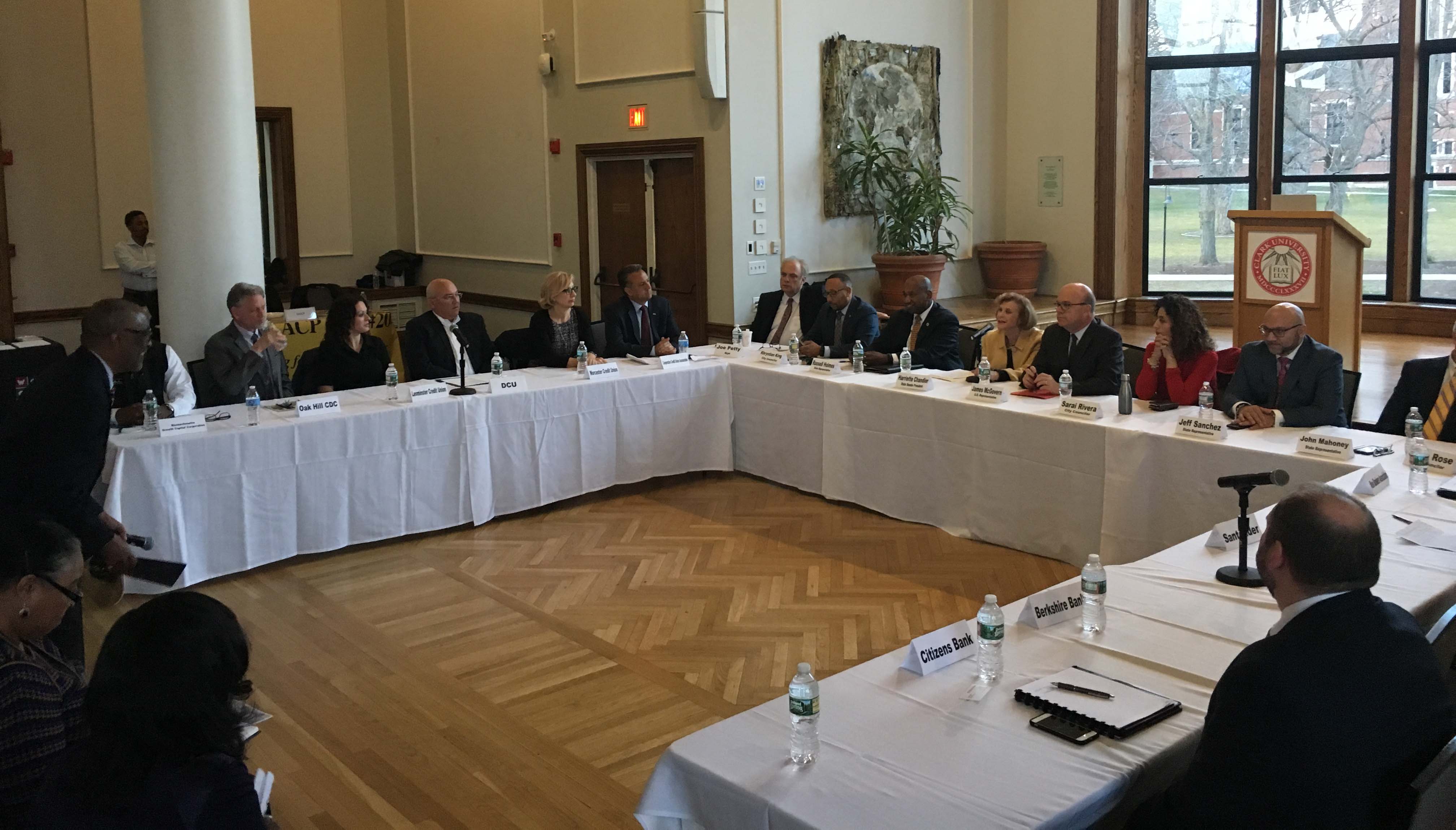
The panel at Clark University Wednesday night, including elected officials and representatives of area banks.
By Bill Shaner
Worcester Magazine
March 28, 2018
Two dominant issues emerged from a forum on banking practices among communities of color Wednesday night: the lack of bank branches in Worcester’s poorer neighborhoods and home foreclosures.
More than a dozen residents spoke to the large panel consisting of elected officials and representatives of major area banks and credit unions.
The forum at Clark University Wednesday night was called a Dialogue on Banking, hosted by the statewide advocacy group Communities of Color. It was part of a statewide tour.
Mayor Joe Petty opened the event by discussing the challenges faced by Worcester’s poorer residents and neighborhoods using banks and making good financial decisions.
“Driving here from City Hall you will not pass a single bank,” said Petty, referencing the long stretch of Main Street known as Main South, which has no storefront banks but several corner check cashing stops.
While the percentage of Massachusetts residents who don’t have a bank account is about 5 percent, Petty said the figure in Worcester is closer to 30 percent. Being unbanked, he said, leads to predatory pay-day lenders, high interest loans for cars and credit scams.
“For too long, bank policy has exacerbated the effects of poverty,” he said.
Later in the program, a man from the crowd stood up to make the same point. He asked what the banks could do to get branches open in the Main South area.
The response from officials representing major banks like Santander, Citizens and Bank of America. They said serving under-served areas is a priority, but they haven’t decided how to go about it, given that banking is increasingly moving to the internet.
“The future of banking is a big question,” said Timothy Burrell, a representative of Citizens Bank.
Each of the banks and credit unions spoke to efforts underway to reach out to and enroll people from underserved areas in checking accounts. The initiatives ranged from financial literacy programs to a bus that offers roving banking services.
The other issue of the night was house foreclosures, and several residents as well as housing activists spoke to personal experience dealing with banks.
Caroline Lewis, a Worcester resident, said that after her husband had died, Wells Fargo has made several attempts to take her house.
“How can i maintain my home and not be under the constant deluge of bureaucratic misfortunes that come from Wells Fargo,” she asked.
She was referred to statewide support services that could help her. Others spoke of trouble with other banks, and the courts.
The conversation led State Rep. Russell Holmes to press officials from the banks present to give an estimate of how many mortgages they still have that were affected by the housing crash of 2007-2008. After none answered, he moved on to the next question.
Another woman, Esther Ngotho of Beverly, argued she was sold a mortage she shouldn’t have been in 2001, after she had recently moved from Kenya. The mortgage was far more than she could reasonably pay, she said, and it set her up to fail.
At the end of the program, Congressman Jim McGovern addressed Ngotho specifically.
“Some of the bigger banks in this country screwed a lot of people in this country, that’s as plain as I can put it, and the cases we deal with in our office are heart breaking,” said McGovern.
Of her loan, he said it was inexusable
“It is criminal, in my opinion. ”
